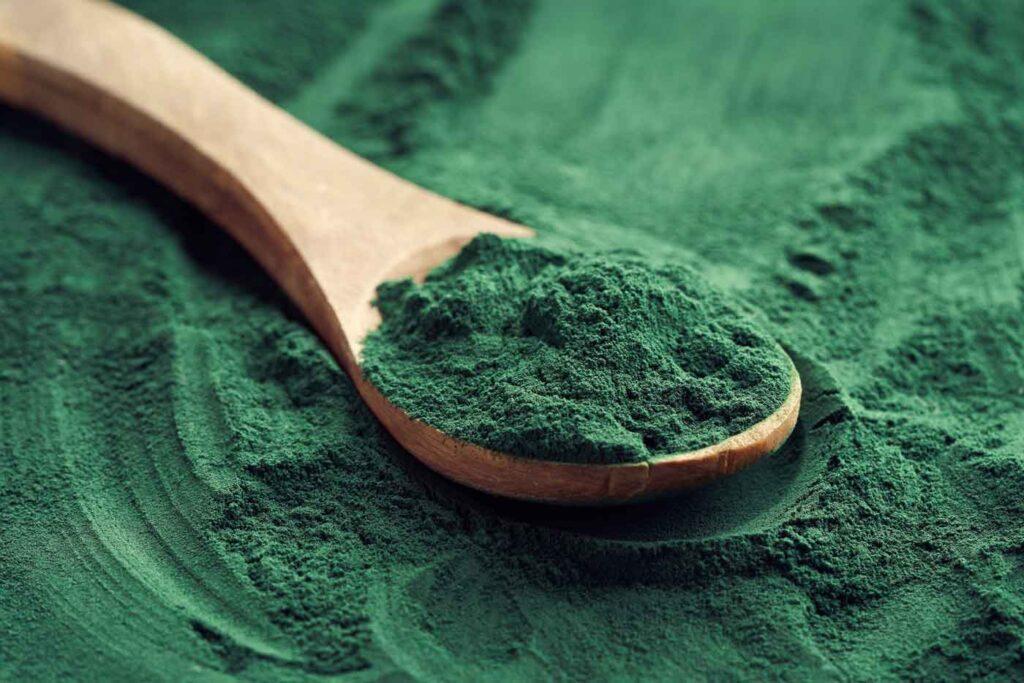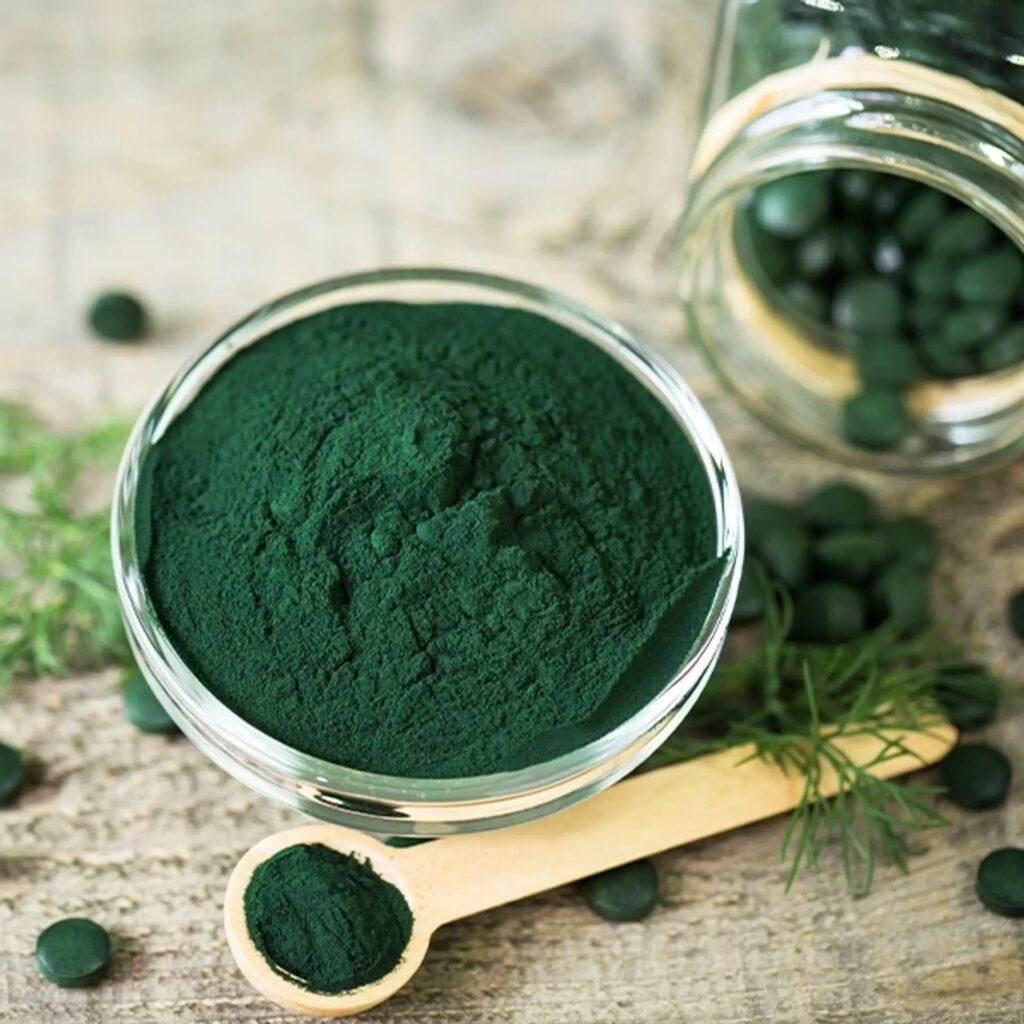Table of Contents
Introduction
Have you heard of a superfood that is high in nutrients and provides numerous health benefits? Meet spirulina! This blue-green algae has been making headlines in the medical community for good cause. Spirulina, which comes from both fresh and saltwater sources, has a long history extending back to ancient civilizations, including the Aztecs, who valued it for its nutritional benefits.

Nutritional Profile of Spirulina
Vitamins and Minerals
Blue-green algae contains a high concentration of vitamins and minerals. It is high in vitamins A, K, and numerous B vitamins, including thiamine, riboflavin, and niacin. It is high in minerals such as iron, magnesium, and potassium, making it a wonderful supplement to your diet for overall health.
Protein Content
Did you know that spirulina contains roughly 60-70% protein by weight? It includes all of the necessary amino acids, making it a complete protein source. This is especially useful for vegetarians and vegans trying to increase their protein intake without using animal products.
Antioxidants and Phytonutrients
Spirulina contains many antioxidants, including phycocyanin, which gives it its characteristic blue-green colour. These antioxidants fight oxidative stress and inflammation, protecting your cells from harm.

Boosting Immune System
Regular spirulina eating can considerably improve your immune system. Its high antioxidant concentration aids in the fight against free radicals, reduces oxidative stress, and improves general immunological function.
Enhancing Energy Levels
Feeling lethargic? Spirulina could be just what you need to get going. Its high protein content and vitamin profile provide a natural energy boost, making it an ideal addition to your morning smoothie.
Supporting Heart Health
It has been demonstrated to lower LDL (bad) cholesterol while increasing HDL levels. This helps to maintain healthy arteries and lowers the risk of heart disease.
Spirulina for Weight Loss
Appetite Suppression
One of spirulina’s lesser-known benefits is its appetite suppressant properties. Its high protein and nutrient content keep you satiated for longer, minimizing the desire to snack in between meals.
Metabolism Boost
It can also increase your metabolism, allowing your body to burn calories more efficiently. This makes it an ideal supplement for people wanting to lose a few pounds.
Spirulina and Detoxification
Detoxifying Heavy Metals
This blue-green algae is well-known for its detoxifying properties, notably its ability to remove heavy metals from the body, such as arsenic. Its high chlorophyll content aids in attaching to and eliminating harmful poisons.
Supporting Liver Health
Your liver works diligently to purify your system. It helps the liver function by giving important minerals and antioxidants, which promotes overall liver health.
Spirulina in Skin Care
Anti-Aging Properties
Its high antioxidant content makes it an excellent anti-aging component. It reduces the appearance of fine lines and wrinkles, leaving you with a young glow.
Fighting Acne and Skin Conditions
It’s anti-inflammatory qualities can assist with acne and other skin issues. It soothes and lowers redness, resulting in a clearer complexion.
Spirulina for Mental Health
Reducing Anxiety and Depression
According to several research, spirulina can help alleviate anxiety and despair. Its high vitamin content promotes brain health, potentially enhancing mood and cognitive function.
Enhancing Cognitive Function
The antioxidants and anti-inflammatory substances found in spirulina can also help with cognitive function, increasing memory and overall brain performance.
How to Incorporate Spirulina into Your Diet
Spirulina Powder
Spirulina powder is the most adaptable form. You can add it to smoothies, juices, and salads to improve their nutritious value.
Spirulina Tablets
Spirulina pills are a handier option. They offer the same benefits without the flavours, making them an excellent choice for those who lead hectic lives.
Smoothie and Juice Recipes
Add spirulina to your favourite smoothie or juice recipes. Blend it with fruits like bananas, apples, and berries to make a delightful and nutritious drink.
Potential Side Effects and Precautions
Allergic Reactions
Although spirulina is generally safe, adverse reactions can happen to certain people. It’s critical to begin with a low dosage and observe your body’s response.
Recommended Dosages
To prevent possible adverse effects like nausea or digestive problems, adhere to the recommended dosages. For most people, one to three grams per day is plenty.
Choosing the Right Spirulina Product
Organic vs. Non-Organic
Choose organic spirulina to stay away from hazardous chemicals and pesticides. To ensure quality and purity, organic spirulina is grown in regulated conditions.
Trusted Brands and Certifications
Search for reputable companies that offer purity and quality certifications. You can be sure you’re getting a high-quality product by having it tested by a third party.
Environmental Impact of Spirulina
Sustainable Farming Practices
Growing spirulina is incredibly sustainable. It’s an environmentally friendly choice because it uses less land and water than conventional crops.
Benefits to the Environment
One way that spirulina cultivation benefits the environment is by lowering carbon dioxide levels. Its growth process is environmentally balanced and energy-efficient.
Scientific Studies on Spirulina
Recent Research and Findings
It has been shown in recent research to offer potential for treating a range of illnesses, from promoting mental health to decreasing cholesterol. More advantages are becoming apparent due to ongoing research.
Expert Opinions
It is commonly suggested by nutritionists and health experts as a component of a well-rounded diet. It is a well-liked option for wellness aficionados due to its extensive nutritional profile and health advantages.



